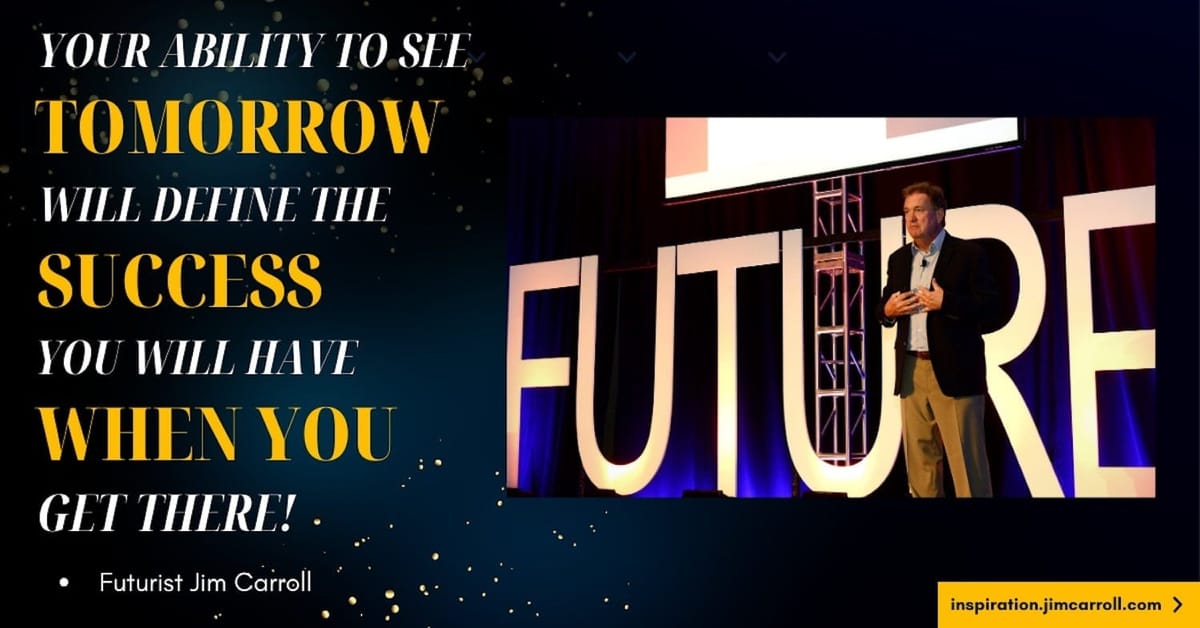People always presume that tomorrow will be pretty much like today.
In the short term, that might be true. But give time to any trend, and tomorrow will be dramatically and fundamentally different. That's why I do what I do - I help to guide people and organizations into those long-term trends and help them understand the implications of what they mean.
Shouldn't you try and do the same thing? Become your own futurist?
To do what I do, I study obvious future trends by examining the world around us today. Some of these trends are readily apparent; others are not. What we do know is that science tells us that it is exponentiating - this is accelerating the discovery of new materials. We know that technologies such as AI are going to lead us into a dramatically different future. We can see any number of entrepreneurs and bold visionaries determined to reshape existing industries and create new ones. There are signs that the changing of age in the workforce is leading to the dominance of a generation that has never known a world without connectivity and will think and act differently with the people and the machines around them. It's patently obvious that the massive urbanization of just 40 hyper-cities is going to lead to significant new trends involving water, food, and construction. We know that the nature of research and development is changing as edge-thinking, collaborative development, and knowledge acceleration lead to new discoveries faster than ever before.
These are the types of obvious trends that I often think about that help me understand what tomorrow might look like. There are many more. To me, much of the future is obvious - to others, it is not.
I've long suggested that anyone who wants to pursue opportunity should become their own futurist - they should empower themselves with the tools of knowledge that help them to understand trends and study the implications on their own. It would seem intuitive that if you take the time to understand where the world might be tomorrow, you will have a better understanding of how to position yourself within it.
To do this, do what I do:
- stay up to date with leading-edge trends: this will help you identify potential future trends and build your strategic foresight
- accelerate your creativity - really try to focus on thinking differently than others do, because this will often give you unique insight into how to realize how the future will be different
- seek offbeat or unusual solutions to intractable problems - because that's what the entrepreneurs and visionaries are doing
- start to practice the idea of ignoring the quo in the status quo - don't presume the existing solution is the only one
- challenge yourself to be more open-minded - your opinions can often get in the way of your ability to understand what really comes next
- inhale change - make it a part of your inner DNA
- listen to the rebels, the freaks, and the oddballs - often, it is these folks who are busy building the future
- be relentlessly curious - study things you know nothing about, simply to know more
- ask questions - because your new job is becoming one of chasing answers
- adapt to everything - because that is the essence of how you arrive in tomorrow in better shape than you are today
Above all, learn to master the knowledge tools around you. We are at a unique and pivotal moment in time, where our ability to use large language models like ChatGPT and Perplexity.ai is allowing us to enhance and accelerate our knowledge. Learn to use them, and use them wisely.
Futurist Jim Carroll has long realized that he has a really cool job.
Thank you for reading Jim Carroll's Daily Inspiration. This post is public so feel free to share it.

